Photo essay for the Special Initiative “From Fear to Resilience: Visual Storytelling of COVID-19 in Southeast Asia” by SEA Junction and Partners.
| Title: | Organic gardening sustains a vulnerable community in Metro Manila by Rhon Palmera |
| Storyteller/Artist: | Rhon Palmera (except one by Anonymous) |
| Place: | Pangarap Village, North Caloocan City, Metro Manila, Philippines |
| Time: | May 2020 |
Pangarap Village in North Caloocan City, Metro Manila is composed of two barangays or communities (Barangay 182 and Barangay 183) with a size of 156 hectares and a population of about 40,000 residents. Already before the COVID-19 pandemic, the village has been for two months without electricity and with limited supply of clean water. Since two cases were identified in late March the residents have to cope with the spread of COVID-19 and survive with less incomes during the lockdown (so-called Extended Enhance Community Quarantine) imposed by the national and local government.
Rhon Palmera, a martial arts and pencak silat instructor and former athlete, is the team leader of the village’s volunteers called “Kasambayanihan” or community volunteers – “Taniman sa Komunidad“. Many of the volunteers are his martial arts students. Rhon comes from a family of farmers and together with his team they thought of distributing seeds to the village households in anticipation of the announcement of the lockdown to supplement the diet of families with some healthy food. Fruits from mango trees and other trees common in the barangay, provide further additional nutrients.
Each family can now grow some organic vegetables –including spinach, lettuce and beans– in their premises or in front of their premises, dividing their time for cultivation as best fits their needs. By producing at least some vegetables of their own they reduce their livelihoods costs and they don’t need to go outside minimizing the risk of disease transmission. If they have some surplus they give to the poorest villagers who have no sufficient land to plant. These most disadvantaged community members also help cultivating their neighbors’ plots and earn some small incomes or food. The volunteers also distributed donated goods, included food, but it is most packaged snack and instant foods.
The lack of electricity and ample supply of water negatively affect the community’s daily activities. It also required some inventiveness in cultivating. Families recycle waste waters from the kitchen sinks to nourish the plants and also use the water used to wash the rice (waste water) for irrigation purposes. They also adjusted the design of the planters to ensure minimal use of water. Plants on top drip water below where other layers of plants are located in a cascade. For the lack of electricity some families use solar power while others use generator sets to try to have sufficient energy for the household chores. The plants are not too effected as they are grown outside in the warm temperature of the Philippines
The strict lockdown has now given way to the less stringent Modified Enhanced Community Quarantine (MECQ). Life conditions in the barangays remain harsh, but in Rhon’s words “volunteerism and green gardening enable us to be resilient during this crisis”.
Photographer/Storyteller
Rhon Palmera is a former Philippines National Pencak Silat team member and 1991 SEA Games medalist and has been competing internationally since 1991. Now he is greatly involved in Ethnosport and traditional games and in promoting volunteerism. He and his family live in Pangarap Village.
Organizers
From Fear to Resilience: Visual Storytelling of COVID-19 in Southeast Asia is a special initiative of SEA Junction and its partners Beyond Food, GAATW and Bangkok Tribune to provide an alternative visual narrative of the pandemic in the region. We believe in the importance of reducing fear and promote informed policy and public discussion to show that COVID19 is also a tale of survival, resilience and solidarity. We are asking for short stories in the form of photo essays, short documentaries and illustrated art essays in any language of Southeast Asia (to be later translated into English) or in English.
See further: http://seajunction.org/special-initiatives/

The entrance of the barangay in Pangarap Village locked down. (Photo by anonymous)
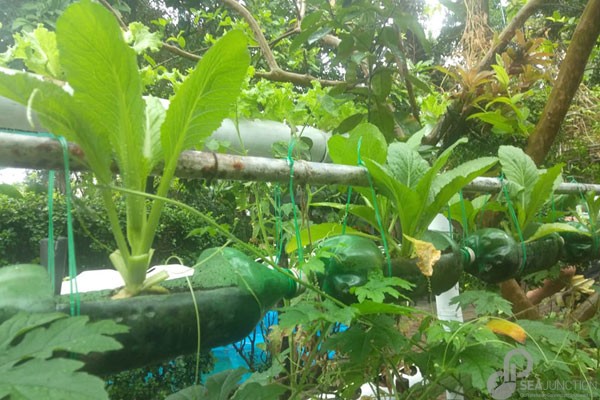
Organic cultivation on repurposed Pet bottles. (Photo by Rhon Palmera)

Organic cultivation on repurposed Pet bottles. (Photo by Rhon Palmera)
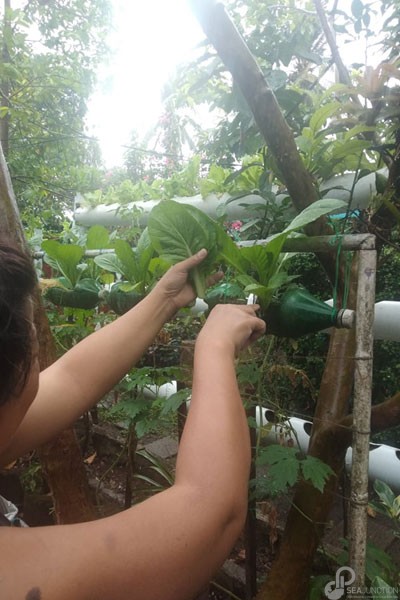
Mustard leaves mini harvest. (Photo by Rhon Palmera)
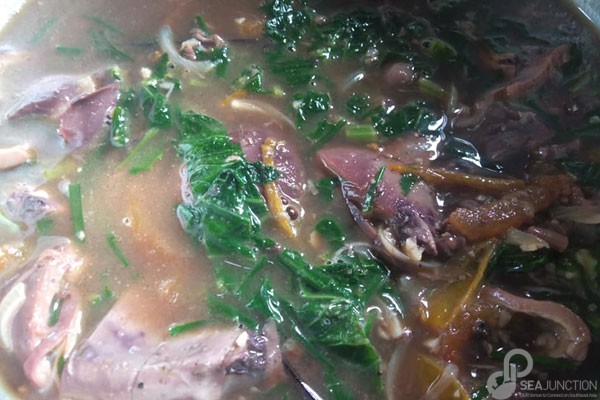
Mustard leaves cooked with squids. (Photo by Rhon Palmera)
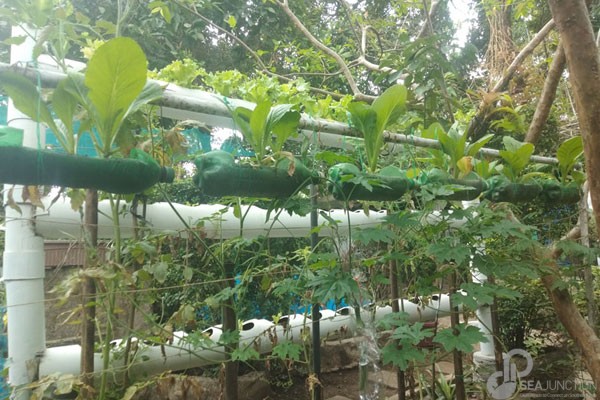
Multi-layer organic gardening of various vegetables (mustard leaves, bitter gourd, lettuce and more). (Photo by Rhon Palmera)
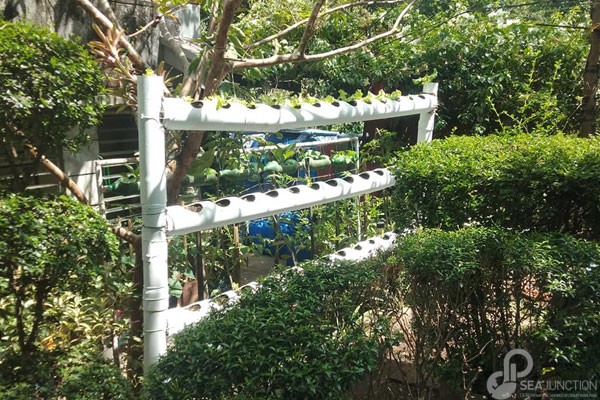
Organically homegrown lettuce for salad on horizontal PVC planters. (Photo by Rhon Palmera)
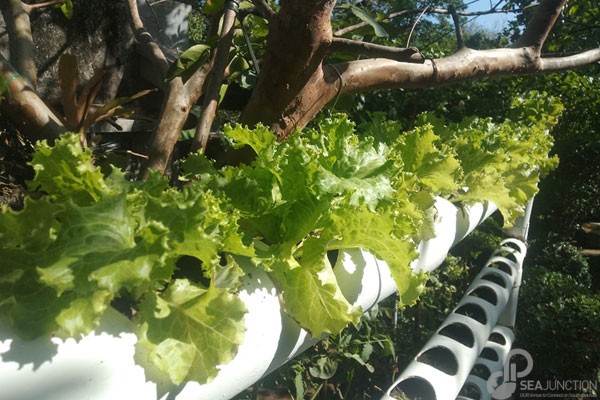
Only weeks since they are planted and now these lettuces are blooming. (Photo by Rhon Palmera)
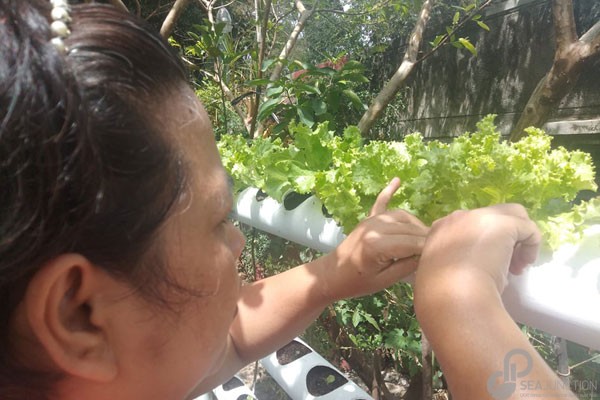
Harvesting lettuce. (Photo by Rhon Palmera)
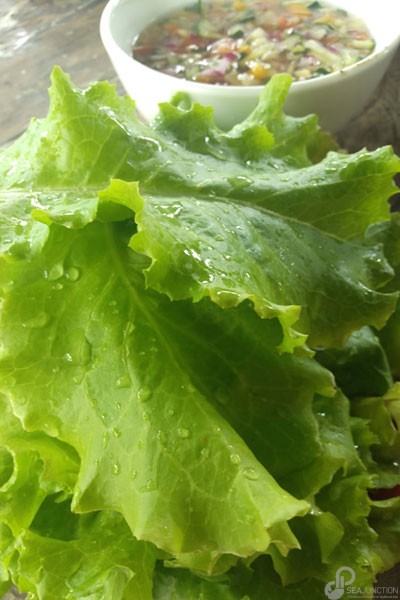
Lettuce with seasoning ready to eat. (Photo by Rhon Palmera)
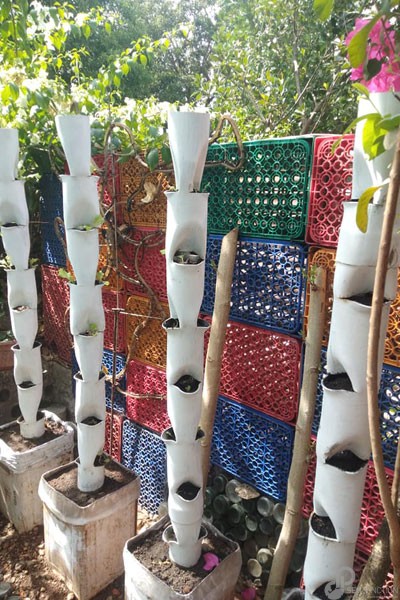
PVC vertical planters filled with organically home-grown lettuce (Photo by Rhon Palmera)
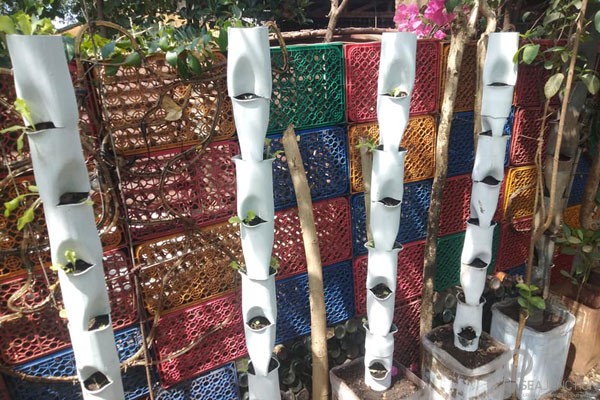
PVC vertical planters filled with organically home-grown lettuce (Photo by Rhon Palmera)
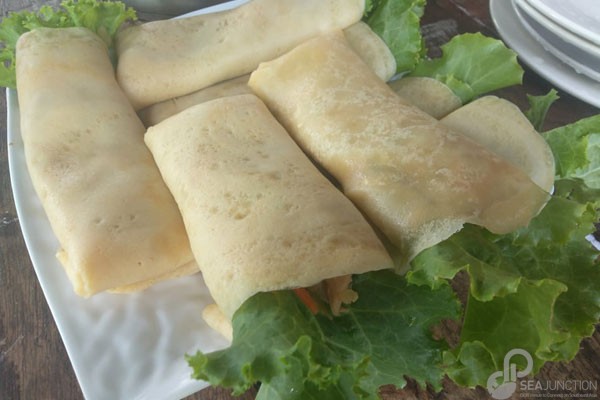
Fresh spring rolls with organic lettuce (Photo by Rhon Palmera)
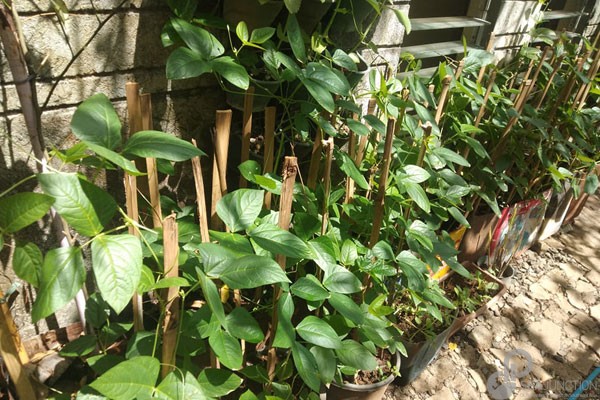
Lovely veggie containers made by tin cans and other repurposed materials. (Photo by Rhon Palmera)
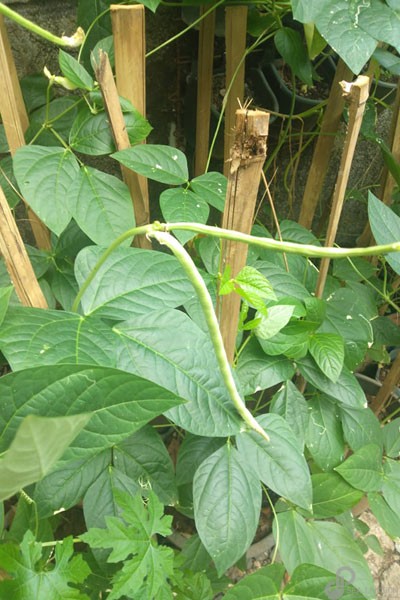
Organically home-grown “sitaw” (string beans)
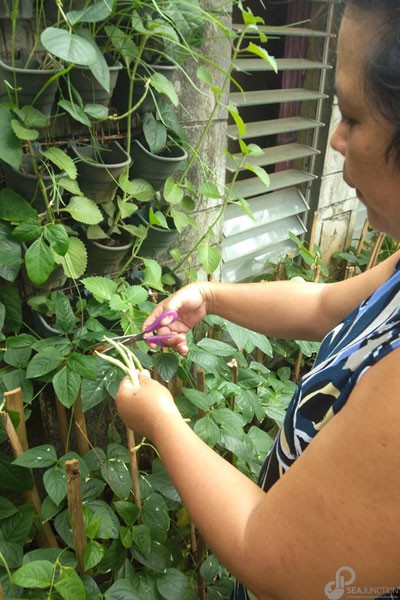
Harvesting of string beans. (Photo by Rhon Palmera)
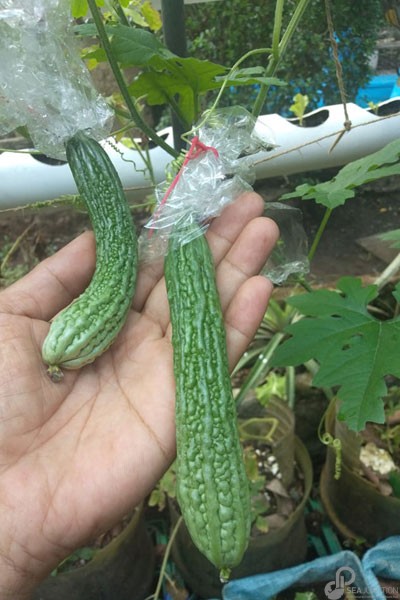
Bitter gourds almost ready to be harvested. (Photo by Rhon Palmera)
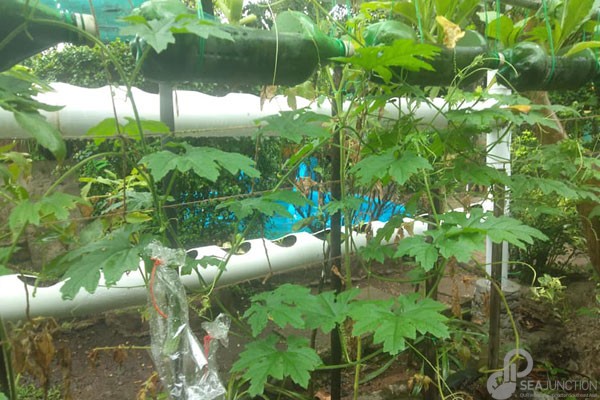
Bitter gourd plants. (Photo by Rhon Palmera)
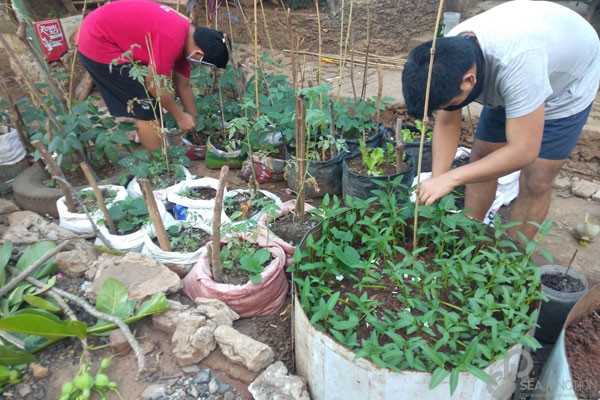
Village volunteers gardening with masks (Photo by Rhon Palmera)
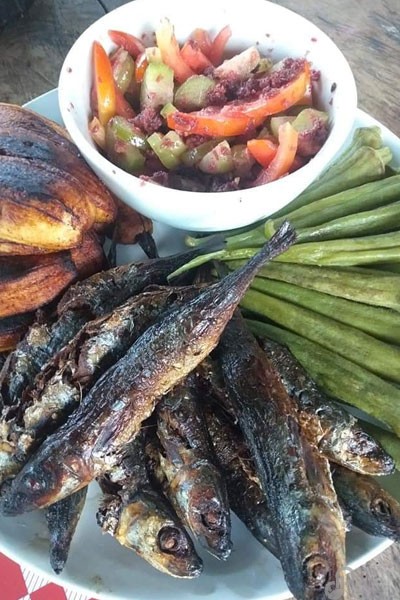
A masarap (tasty), fresh and healthy meal. (Photo by Rhon Palmera)
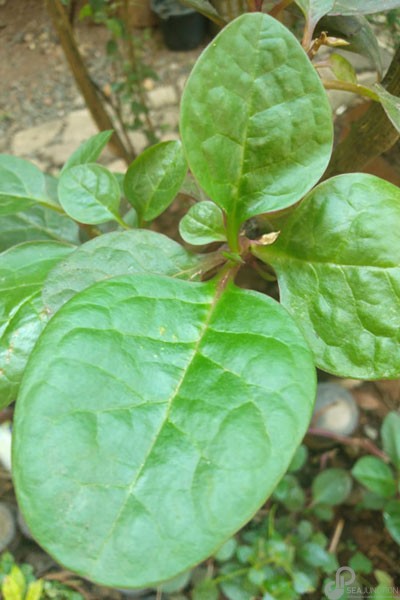
Organic spinach plant (Photo by Rhon Palmera)
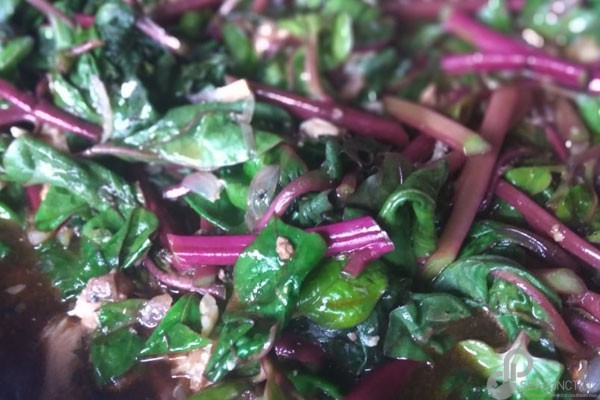
Cooked organic spinaches from the home garden (Photo by Rhon Palmera)
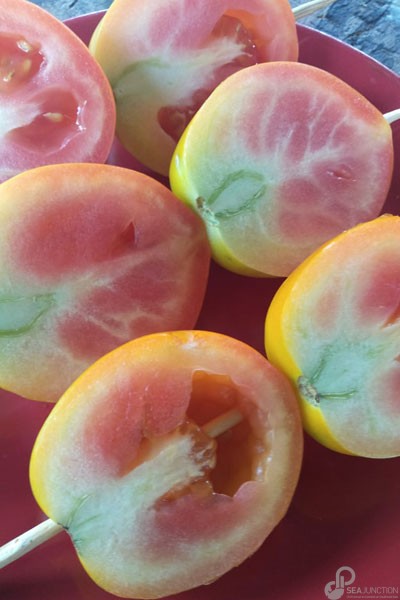
Tomato satay. (Photo by Rhon Palmera)
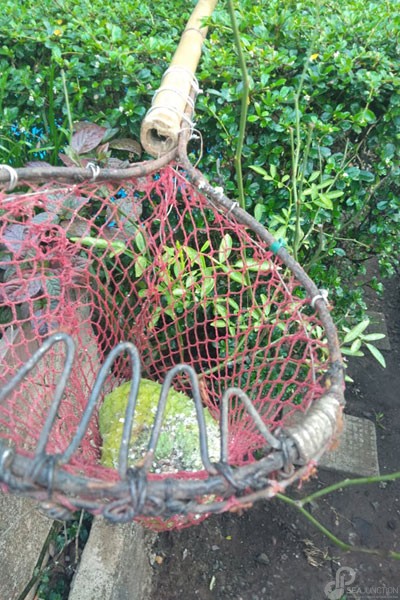
How to pick up fruits from the trees. (Photo by Rhon Palmera)
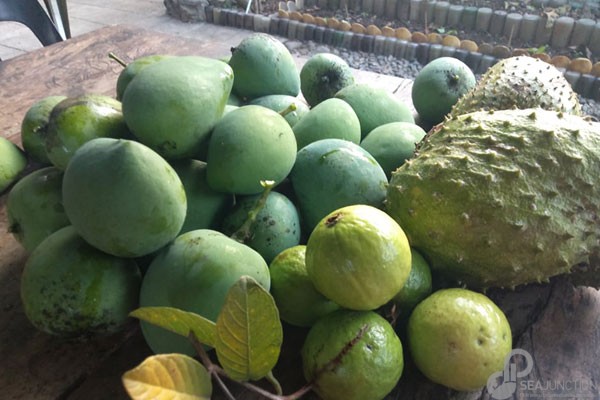
Plenty of fruit from the barangay’s trees. (Photo by Rhon Palmera)
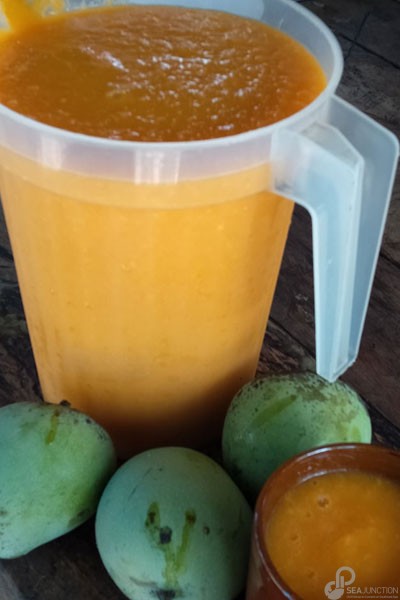
Fresh mango juice from the barangay’s trees. (Photo by Rhon Palmera)
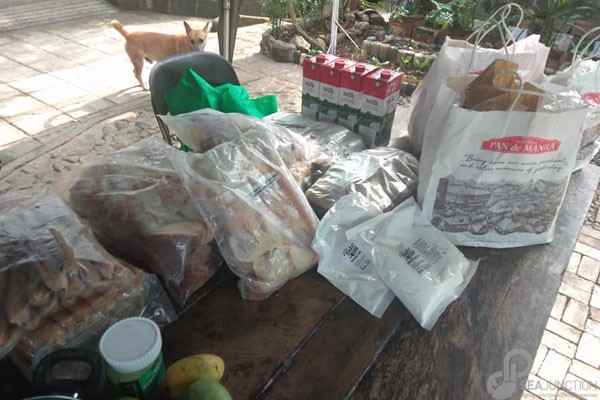
Received donations to be distributed to the community members. (Photo by Rhon Palmera)
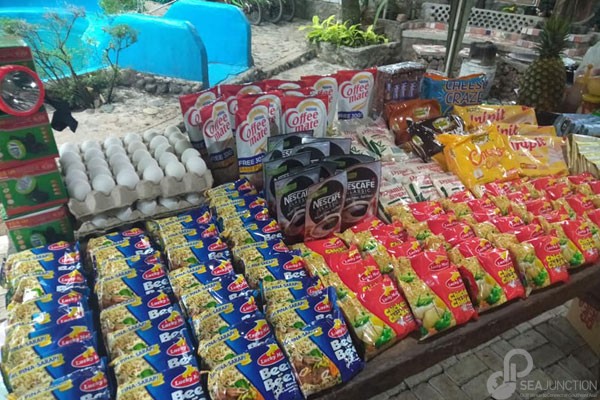
Received donations to be distributed to the community members. (Photo by Rhon Palmera)
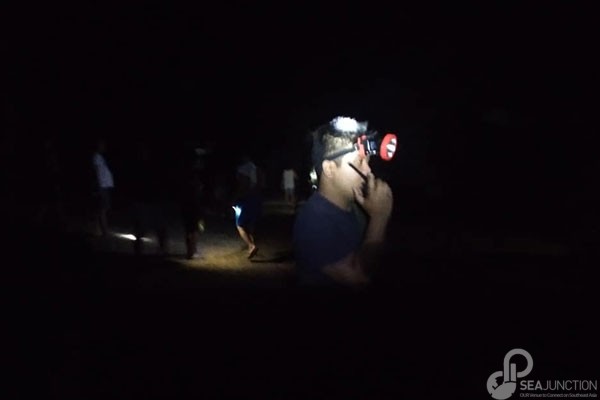
Volunteers’s patrol in the dark with no electricity (Photo by Rhon Palmera)
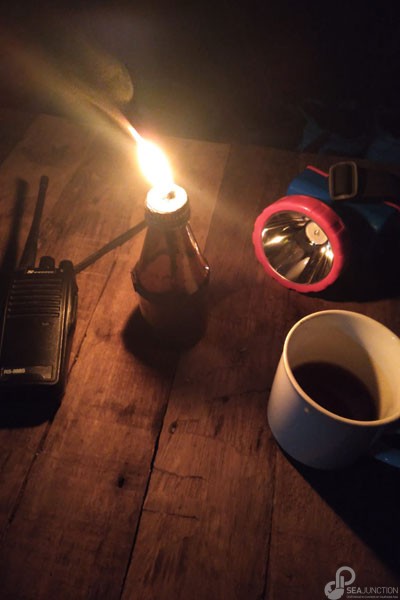
It is dark without electricity, but the volunteers remain alert to guard their community. (Photo by Rhon Palmera)


